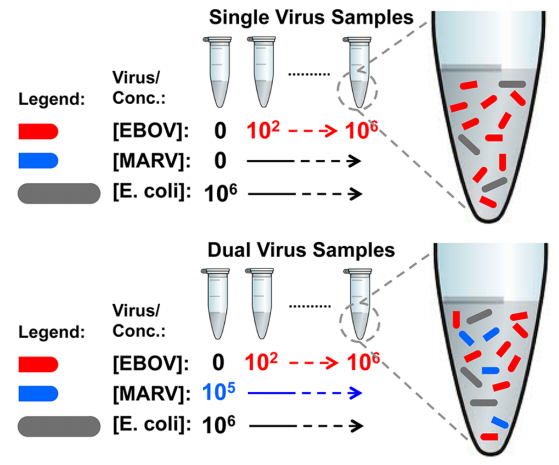Conventional fluorescent label based virus detection methods require expensive lab equipment, significant sample preparation, transport and processing times, and extensive training to use. Boston University professors Selim Unlu and John Connor are working on a rapid, label-free, chip-scale photonic device to provide affordable, simple, and accurate on-site detection.
Current methods can require an hour for sample preparation, and an additional two hours for processing The BU prototype requires little to no sample preparation time and delivers answers in an hour. Minimizing sample preparation and handling times can also reduce exposure to health care workers.
The shoebox-sized, battery operated device, known as the single particle interferometric reflectance imaging sensor (SP-IRIS), detects pathogens by shining light from multicolor LED sources on viral nanoparticles bound to the sensor surface by a coating of virus-specific antibodies. Interference of light reflected from the surface is modified by the presence of the particles, producing a distinct signal that reveals the size and shape of each particle. The sensor surface is very large and can capture the telltale responses of up to a million nanoparticles.
